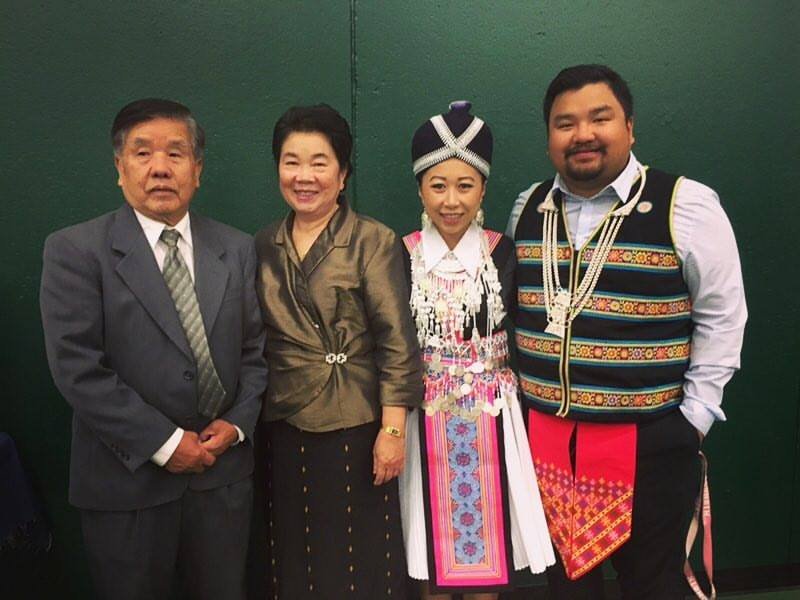Journey and Connection to LEAP’s work and mission
I was born to Hmong refugee parents in a small town in rural Wisconsin. I lead with these two facts because from my earliest memories, I was hyper conscious of how differently I looked compared to my majority white peers. Being a son of parents who couldn’t speak English, raised in a three-bedroom household with 8 siblings, and being marked as a low income household are just a few of the many compounding factors that positioned young people like me to fail in this country.
How does this tie into leadership?
Growing up, I equated success and leadership with white American values. Everywhere I turned, doctors, business owners, teachers, leaders, etc. were all white. Naturally as a young person, I consciously made decisions that allowed me to get closer to this version of what I thought success required. I stopped speaking the Hmong language and took French in school, I encouraged my parents to buy “American” food so that I wouldn’t have to pack our cultural foods to school, and I gravitated away from all things Hmong including friends and cultural celebrations. I was willing to bet this was the answer if I was ever going to be successful and be a leader in my own right someday. I saw the fruits of my labor in high school as I began landing competitive internships and even got accepted into the flagship college of Wisconsin, the University of Wisconsin-Madison.
While attending this predominantly white institution, my game plan did not change. I continued to intentionally assimilate to the point where I had no affiliation with the Hmong and Asian American identities that were naturally placed upon me. Things continued to pay off academically and socially while sticking to this plan. But then something happened. I was invited to share space with other Asian American students during various multicultural student organization events. That was probably the first time I ever saw my Asian American peers being leaders. This piqued my curiosity and led me down many nights of reflection, which centered around knowing something very deep in my core was missing while on my quest towards this distorted version of the American dream. I began attending more of these multicultural student organization events because I realized that piece that was missing was an Asian American values-affirming approach to leadership, in which I got to observe and soak in. I started thinking, “this type of leadership feels more organic and I like that.” I admired these Asian American student leaders that seemed to so flawlessly lead in authentic ways. Eventually, I was drawn closer and closer to the Vice President of the Hmong Student organization at the time because of her fierce and non-apologetic way of leading. This person became my life partner and still serves as my biggest role model when it comes to leadership. I owe everything to how she challenged my ways of thinking and being. And it didn’t ever feel as if the way I approached leadership was being called out, it was more like I was being called in.
Upon graduating college, I pursued my Master’s Degree in Education at Marquette University while teaching full time at the Milwaukee charter school that served over 1,600 Hmong American students as a high school social studies teacher. What a full circle moment this was as I stood in front of class after class being not only a teacher, but a role model myself for young people that like me, didn’t have many role models to look up to. As I reflect on my journey, where I came from a place where there were virtually no people in positions of power that were Hmong or even Asian American to being that very person for students changed my life and the ways in which I now show up in any space that I occupy. The biggest lessons I learned from being a teacher are intimately tied to how I view leadership. Imagine coaching and mentoring people, setting goals and holding high expectations, building authentic relationships that drive intrinsic motivation, and curating an environment that is inclusive and welcoming to all.
That is true leadership and whether someone is a leader in the non-profit sector, corporate sector, at the college level, etc., I believe leadership is leadership. Through this part of my journey, I was able to tap back into my cultural values and view them as strengths and not weaknesses.
Transparently, this is something I continue to think intentionally about as I know my leadership continues to evolve through the many learnings and unlearning I will experience.
Currently, as a Program Manager at LEAP where in this role, I get to support, lead, design and facilitate various leadership programs and workshops for Asian and Pacific Islander leaders across sectors, I can confidently say that without the challenges and experiences that I faced growing up in the Midwest as an Asian American man, I wouldn’t be in this role, doing this very important work today. Leadership development for APIs is more than a job for me, it is closely tied to my personal journey and now, my personal mission.
About the author
Chingcha is one of LEAP’s program managers where he designs workshops and programs for both the corporate and non-profit API leaders. He was formerly a teacher, a school administrator, and also worked for Teach for America as a recruiter in the Midwest. His two passions of developing people and centering API communities at the forefront of his work has become a reality at LEAP.





